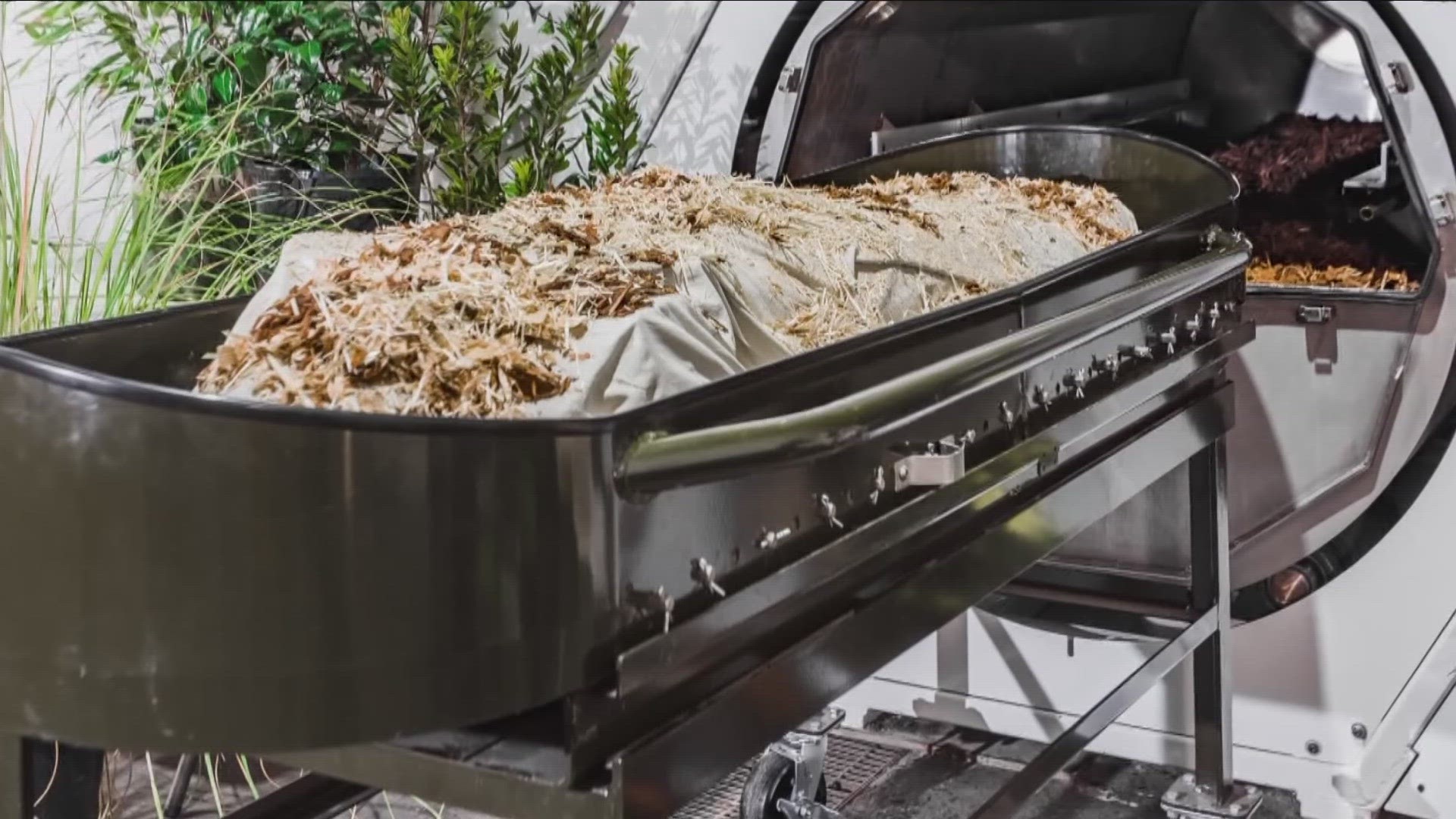CHEEKTOWAGA, N.Y. — Just as cremation is the most popular option for those who pass on in New York State, human composting is now on the horizon as well.
2 On Your Side spoke with cemetery operators about this new trend, which has started to become more popular on the West Coast.
From dust to dust is the common funeral prayer phrase, with eventual underground decomposition of human remains in a casket. But now add dust to "dirt" as in natural organic reduction, as in "human composting," which will now be legal in New York state as regulations are being drawn up.
New York actually now one of seven states to do so with some an environmental appeal.
Douglas Wasiura, president of Mount Calvary Cemetery Group, explained.
"There are folks who want an environmentally friendly option, you know," Wasiura said. "They see the in-ground burials as taking up green space, or cremation as something that is putting a lot of CO-2 in the air, so they're looking for something as an alternative."
That alternative dates back to 2019 in the state of Washington, where large-scale facilities were built for the process. Cemeteries here in New York might consider similar costly building investments.
A non-embalmed body is kept in a cold steel chamber with a covering of layers of bark, straw, alfalfa, and wood chips to assist bacterial microbes to break down the corpse.
After 30 days remaining bones are removed to be ground up and added back in, with careful monitoring and testing, to make sure no pathogens can spread.
"The body is giving off gases as it's decomposing," Wasiura said. "The infrastructure that you have to put in place for those natural organic reduction facilities, you have to think about air handling, you have to think about temperature, humidity."
In other western states, the resulting compost material, the volume of which might be comparable to as much as a pickup truck load of mulch, can legally be spread in a forest, or even one man's push to spread his wife's decomposed remains in his backyard for a memorial garden.
But here in New York, David Fleming of the New York State Association of Cemeteries points out: "Under New York's law, which is must different than Washington State, disposition of those remains would have to be within a cemetery."
Some cemetery operators could benefit, as currently up to 60 percent of people choose much lower cost cremation, and ashes in urns can be taken home, even though some still choose cemetery memorials.
As for placing composted remains in cemeteries, which are forever resting places under New York law, Wasiura noted, "Some cemeteries are taking family plots and taking up the first one foot of dirt, and then adding that organic material into the family plot. Some cemeteries have open property with fields or forests that they're putting organic matter out into. "
NBC News reports human composting in other states may cost $5,000 to $7,000 compared to $10,000 to $12,000 for a traditional burial.
Composting costs could go down if it becomes more popular, which it may be.
"In my recent visit to Washington State, I found out that there were New York residents who were currently in a natural organic reduction process in Washington State," Fleming said.
In checking with some other local cemetery operators, we found out the Buffalo Catholic Cemeteries, following the lead of the U.S. Conference of Catholic Bishops, does not allow organic reduction. The Forest Lawn group of cemeteries has no plans to pursue the human composting option.
Just to distinguish, there is another burial option called "natural burial," where the body can be placed in a specific grave, just wrapped in a shroud without a casket. It decomposes naturally while in the ground.
But in natural organic reduction, this is above-ground decomposition in a sealed chamber, and then the organic matter can be disposed of in the cemetery.

